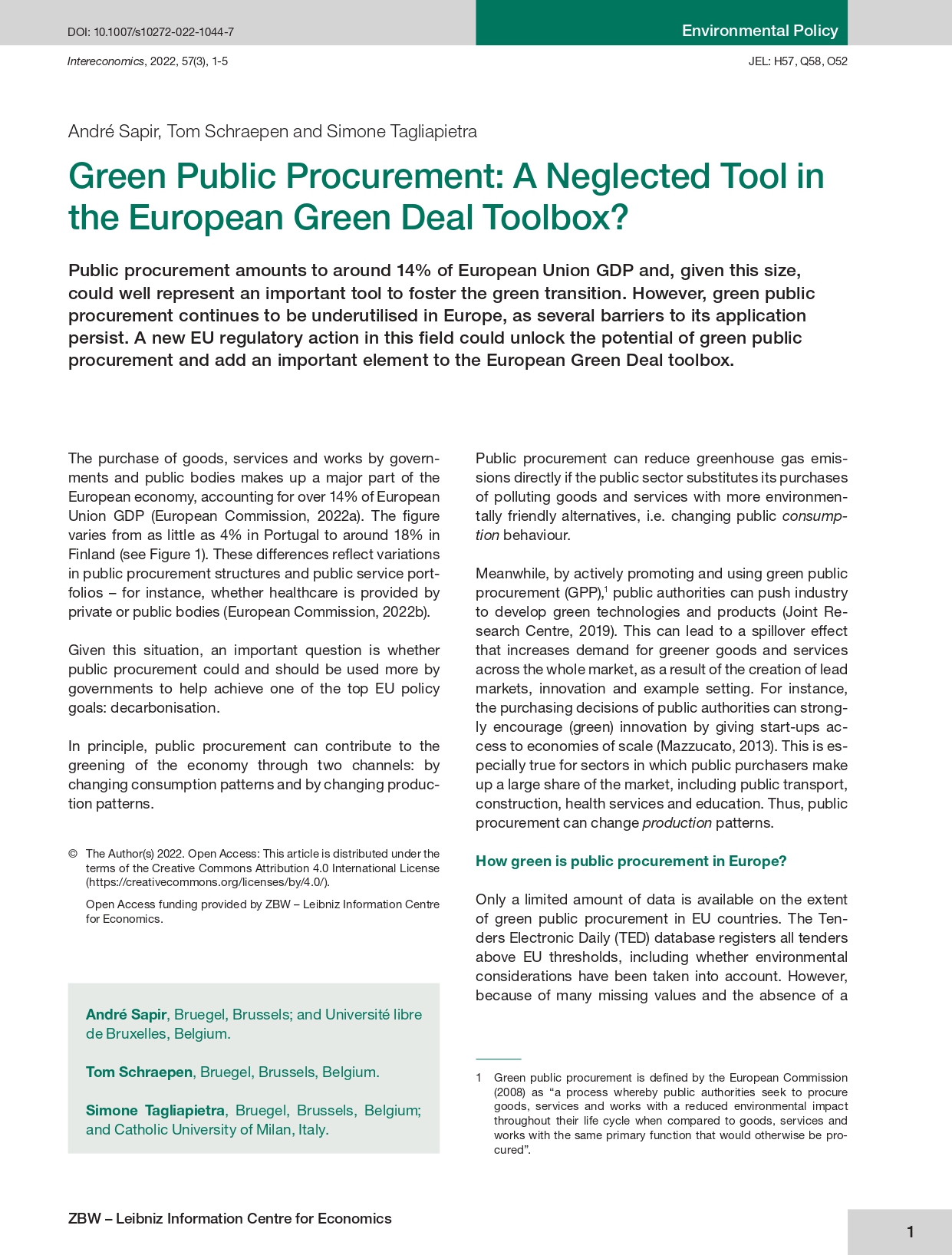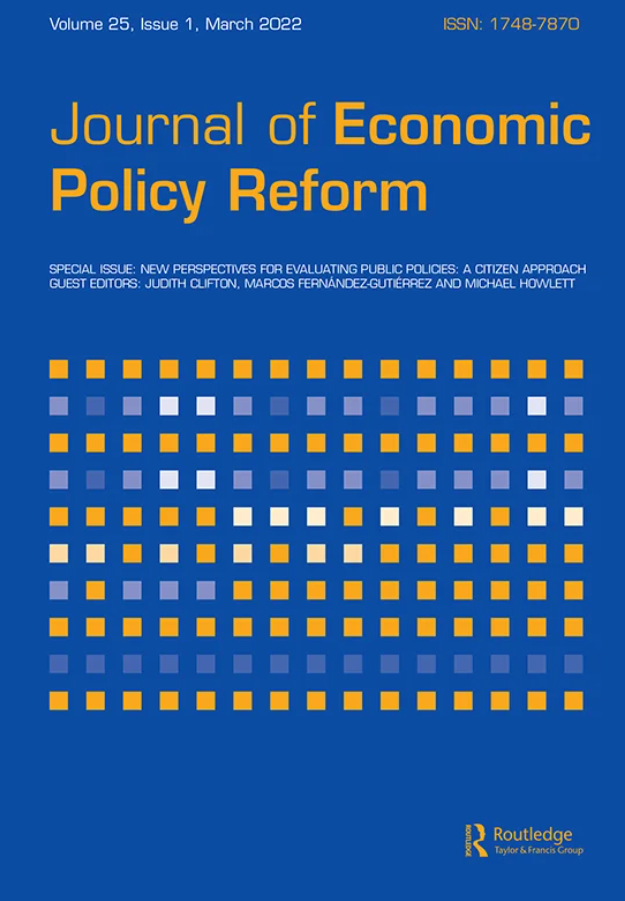Opinion
Increasing the global supply of essential medical supplies: Time for Europe to step up its global leadership
Europe has already made a significant financial contribution to beating the pandemic, now it has the opportunity and moral responsibility to do more.
Versions of this piece were originally published in Caixin, Capital, El País, Helsingin Sanomat, Il Sole 24 Ore, Le Grand Continent, Nikkei Veritas and Rzeczpospolita.

The COVID-19 pandemic is nowhere near its end at a global level. What is worse, new pandemics are likely to endanger global health in the coming decades, with severe consequences for livelihoods and economic activity. Preventing pandemics is a global public good like climate change mitigation: the world needs to act collectively to avoid future episodes like COVID-19.
It should be a priority to find money to invest in pandemic prevention, preparedness and response, as argued in a report to the G20 finance ministers to which we contributed. This financing would fill major gaps in global health security. In the report, we take a conservative approach and focus exclusively on the funding needs for global public goods needed to prevent pandemics. We estimate that US$15 billion would be needed annually to improve global pandemic surveillance capacities, improve essential elements of national health systems and, very importantly, the supply of medical countermeasures and tools. Spending on pandemic prevention, preparedness and response delivers by far the best return on any public investment. The International Monetary Fund, for example, estimates that a faster global vaccine roll-out could spare the world US$9 trillion in foregone income.
The pandemic has shown how crucial the adequate supply of medical countermeasures is. So far, the global supply of COVID-19 vaccines has been insufficient with billions of people not yet vaccinated. In a business-as-usual scenario, the IMF estimates that vaccine production could reach 6 billion doses by the end of 2021, enabling vaccination of 45% of the world population. This would leave large regions vulnerable and would not prevent the emergence of new variants. In the early phases of the pandemic, personal protective equipment and other medical equipment were also in short supply. This lack of capacity means more severe human suffering, longer-lasting constraints on our social lives and significant losses in terms of global economic activity.
This dangerous situation requires bold global action. Europe can play a major role in providing the world with vaccines now and for future pandemics. European companies have been at the forefront of developing effective COVID-19 vaccines. European Union policymakers have resisted the temptation to using the production primarily for the domestic market. Instead, about half of the vaccines produced in the EU have been exported – contrasting starkly with many other parts of the world, which gave exclusive priority to their people. The EU can thus rightly claim to be a reliable partner to the rest of the world. And the EU should step up even further. It is in Europe’s interest to vaccinate as many as possible as quickly as possible: no one is safe until all are safe.
Three steps are essential. First, many countries still do not have access to sufficient numbers of vaccine doses. And while the EU has been championing multilateral approaches to increase the global supply of vaccines, initiatives such as COVAX have fallen short of what is needed. The June 2021 G7 pledge to increase the supply of vaccines by 1 billion also falls short. Instead of waiting for global consensus, we advise the EU to keep helping the developing world gain access to vaccines. Such support can take the form of donations or grants, or concessional lending to countries for purchase of vaccines. It could also be done through contributions to the COVAX facility. The issue is not only access but also affordability: the EU should help poorer countries to purchase vaccines on terms comparable to domestic purchases when negotiating with European suppliers.
Second, as our G20 report argued, the world needs greater supply capacities for vaccines and other medicines and equipment when there is no global pandemic raging. With potential losses of half a trillion dollars a month, as estimated by the IMF for COVID-19 in the first part of 2021, accelerating vaccine production during pandemics brings huge benefits. But building this capacity in ‘peace-time’ requires a certain degree of subsidisation as private firms by themselves do not have sufficient incentives to maintain redundant production capacities. As the world emerges gradually from the pandemic, and the demand for COVID-19 vaccines declines, the EU would be well advised to continue supporting vaccine supply chains to ensure higher capacities are available. Multi-modal manufacturing capacity (mRNA, protein, and virus-based vaccines and therapeutics) can rapidly ramp up production of pandemic-specific medicines and treatments when needed. Financing is needed for manufacturing of multiple prototype pathogen vaccine/diagnostic/therapeutic candidates before outbreaks. Dual-use purposes should be sought for such capacity, which could contribute to controlling endemic diseases and improving health outcomes in inter-pandemic years. The EU has some of the world’s best research centres in this area and should further build on those by increasing research spending.
Third, production capacities in different regions would make the system more resilient and contribute to more equitable global distribution of scarce supplies. The Franco-German initiative to boost BioNTech vaccine production in South Africa is a positive example of this.
Europe has already made a significant financial contribution to beating the pandemic. It needs to step up further in the short-term by buying and distributing more vaccines. Supporting global efforts, as recommended in our G20 report, also offers opportunities for expansion of an important European industrial sector. It is a moral imperative and a huge opportunity for Europe to step up its efforts to combat pandemics.
Republishing and referencing
Bruegel considers itself a public good and takes no institutional standpoint.
Due to copyright agreements we ask that you kindly email request to republish opinions that have appeared in print to [email protected].


















